In the end, four of Council member Mike O'Brien's five amendments to the deep-bore tunnel resolution ended up little grave markers for political transparency. The Port can non-bindingly say it's in for $300 million. The state can stand firmly behind an unfunded transit component. It's late in the game, and it would have been profoundly surprising to find anyone with a change of heart, let alone two or three votes.
"Full speed ahead," trumpets Tim Burgess on his blog, and if you view boldface, assertion, and boldface assertion as successful rhetorical techniques, you can't help but be persuaded. (Winningly, he adds, "The issue of cost overruns has also been resolved.")
The sturm und drang over the prospect of delay on the Alaskan Way Viaduct Replacement project--the bad delay, not the good delay--aside, no one really cares what the Council thinks. It's more the principle of giving the appearance of looking after Seattle's interests. Learning that two-thirds of Seattle residents really do care how much the tunnel may finally cost, the Council went back to the drawing board to look into the benefits of punting....
"basking away" courtesy of our Flickr pool's :MPG:
It's funny, at one time, the conventional wisdom was the deep-bore tunnel funding bill wouldn't have passed without that "You can barely even see it" cost overrun provision, and people took pride in their sausage-making. Now, on the heels of a poll that showed Seattleites do worry about deep-bore tunnel cost overruns, the City Council and Governor Gregoire made sharp about-faces this week, with the Council adding some heretofore "unnecessary" protective language to its end of the agreement, and Gregoire saying the original cost overrun provision didn't come from her office.
Also, the Seattle Times endorsed I-1053, the initiative requiring a super-majority (or a state-wide vote) on any tax increases. (Ironically, simple majority passage of the initiative is good enough for I-1053 backer Tim Eyman--you'd think he'd insist on a two-thirds majority, out of principle.) In this the Times is partners with BP, who still have enough money left over from working on cleaning up the Gulf to fund initiative campaigns.
BREAKING: Popular sentiment is rising to trade the Seattle Times editorial board for the Sacramento Kings.
On our Capitol Hill, crews were trying out a new kind of sidewalk repair. CD News traced the impact of segregation on Seattle neighborhoods. Eastlake Ave. blog noted, ruefully, that repairs are ongoing for the I-5 Ship Canal bridge. Queen Anne View reported that the TV tower climber has been told to STOP DOING THAT....
Coverage of the tunnel project oversight meeting, attended by Governor Gregoire, the Mayor, and the City Council, provides some real whoppers. As expected, the debate grew out of the legislature's provision that Seattle property owners pay for the deep-bore tunnel project's costs if they exceed the budgeted amount of $3.1 billion.
Governor Gregoire has to take top honors for her cherry-picking defense of public project spending. The Seattle Times quotes her as saying:
"Mr. Mayor, we have a track record that's loud and clear. We have a track record of getting every project done on time and on budget," Gregoire said, specifically referring to the Tacoma Narrows Bridge and the recently finished highway ramps in Sodo.
That's right, "every project" means two projects. When the Mayor listed overruns on the Third Avenue bus tunnel, the Brightwater sewage tunnel and the Beacon Hill light-rail tunnel, the Times says Gregoire retorted, "I didn't manage those projects." She also insisted that "delay" is what causes cost overruns, a week after WSDOT announced that building an extra year into deep-bore tunnel project would actually help keep costs down.
Council member Tom Rasmussen also locked horns with the Mayor over the cost overrun provision, arguing that cost overruns are unlikely to occur because the state, planning for cost overruns, built $415 million extra into the project. Now all the cost overruns have to do is conform to projections....
"So McGinn, Holmes, and McKenna have all passed the bar...," was going to be my lead-in, but I couldn't think of a punchline. Who will rid us of this troublesome cost overrun provision?
Mayor McGinn has a new post on his blog, where he makes a lawyerly argument against hoping for the best in deep-bore tunnel (DBT) construction and crossing overrun bridges only when we come to them. First, he lays out the wider context for cost overruns.
Both City Attorney Pete Holmes and State Attorney General Rob McKenna agree that the state's not-one-dollar-more-than-$2.4-billion limitation on DBT spending is for real and enforceable. McKenna adds that, in any event, the state's control of the transportation budget gives the Legislature what Jerry and George know as "hand."
(McGinn doesn't dwell on this point, but I think it's worth emphasizing: Without that cap, and without a clear signal that Seattle must pay for cost overruns, there would be no legislative agreement to fund the DBT project. It would not have passed. Seattle tunnel boosters, in essence, want to play legislative chicken, and confront the Legislature with a fait almost accompli in the case of overruns, daring the Legislature to pull the plug on a project it's sunk $2.4 billion into.)
On the legal standing of the provision that puts Seattle residents on the hook for cost overruns, Holmes and McKenna differ:
Holmes: "It is not enforceable... We are solid on that, we are very clear on that. It is a red herring."
McKenna: "Once it’s adopted, it’s our job to defend it. A law which is adopted by the Legislature is presumptively constitutional."...
(more)
I just got this news release from the Mayor's office, which has got me imagining the Mayor--frustrated in his attempt to debate City Council president Richard Conlin (vacationing in Greece, loving it)--roving Seattle, buttonholing passersby, and demanding answers.
Don't get me wrong, they're good questions. But it makes for a strange news release, in that there's no actual news involved, except for perhaps, "Mayor Has Questions!"
And here they are:
- Why did the state cap its contribution to the tunnel at $2.4 billion and make Seattle taxpayers responsible to pay for cost overruns?
- How can the City Council protect Seattle taxpayers from paying for cost overruns on the project?
- How can the city manage a state project to prevent cost overruns?
- Given the cap in state law, how would the state legally pay more than $2.4 billion for the project?
- Why has the state shifted risk on the performance bonds away from itself and the contractor and onto Seattle?
- What is the cause of cost overruns on other megaprojects? Is it as proponents claim due to delay? Are there other causes?
- What is the state doing differently here than on other megaprojects to prevent overruns?
- What will happen if the tunneling machine gets stuck underground? Who will pay? How will it be resolved?
- If Seattle has to pay for cost overruns, how would the city pay for them? What taxes would the City Council raise, or what programs would it cut?
(h/t Publicola) City Council President Richard Conlin needs to work harder on believing impossible things. The Queen in Alice and Wonderland can do six before breakfast, and he gets stuck on just one: believing the state would really make Seattle pay for deep-bore tunnel cost overruns.
In his post "Time to tell the truth about costs and the viaduct tunnel project," he says the risk of cost overruns is an "exaggeration and serves solely to instill fear and doubt" and calls upon Mayor McGinn to "publicly announce that he will do everything in his power to keep the project moving." Since the legislative intent was to shift all responsibility for cost overruns to "Seattle property owners" (with no upper limit), I'm not sure how Conlin is defining "risk" and "exaggeration."
McGinn's made a public announcement, but it's not quite what Conlin was hoping: "I think it is time that Richard and I air these issues and talk them through in a public forum. A debate like this between us will give the public a chance to decide for themselves whether or not we should worry about cost overruns."
Conlin spends a whole paragraph on what he characterizes as the unenforceable state legislature provision that targets Seattle property owners who benefit from the tunnel:
First, the legislation limiting the state’s responsibility says nothing about the City, but instead makes a legally meaningless reference to property owners. In addition to being vague, the statement that names ‘Seattle area property owners’ as responsible for cost overruns has no legal teeth to compel the City to assume cost overruns for a project that the state is managing.
But in the paragraph immediately succeeding that one, he writes: "Yes, the state could take future legislative action to force the city to pay for overruns," appending to that admission the disclaimer, "but this scenario would set a terrible precedent for all Washington cities and an honest political assessment suggests that such a move would never be approved." Just for the record, the first part is a fact. The second part is an assumption....
When Mayor McGinn reaffirmed his intention to veto any city agreement with the state that left Seattle on the hook for cost overruns for the deep-bore tunnel, the City Council, which voted unanimously last year to leave Seattle exposed to unlimited cost overruns, was apoplectic.
"Grandstanding," said Richard Conlin, whose green credentials apparently extend only to composting. (He's worried about delaying the new, higher-car-capacity 520 bridge, too.)
The Seattle Times quotes the council's transportation chair Tom Rasmussen saying direly, "I think it's a dangerous game. I think it's harmful. It's disingenuous." It seems the council, facing a budget deficit, thinks that it's better to hire "lawyers and other experts to make sure the city is protected in that contract from cost overruns," rather than simply demand the Legislature remove the provision.
While widely reported as new news, McGinn has repeated his refusal to accept cost overruns and sketchy financing early and often since he ran for mayor. How the deep-bore tunnel would be funded was his concern back in July '09, when the city had agreed it "would levy a parking tax, increase utility fees, and use any federal grant or economic stimulus money earmarked for transportation on the project," to raise its share totaling $930 million.
In August of '09, McGinn's campaign site was arguing about the cost overrun provision specifically, and noting that "the Seattle share of tunnel costs nearly equals the total of every other voter-approved levy in the city." In October came the city council's inexplicable, unanimous agreement with the state approving Seattle's responsibility for cost overruns. Only Nick Licata seemed to realize what a horrendous decision this was, but the City Attorney assured him the agreement was "more like guidelines."...
KCWTD photo of "Helene," the giant boring machine that could.
When Dow Constantine took over the King County reins, one of the first major decisions he faced was what to do about Brightwater, the wastewater treatment plant that the King County website tells you is scheduled to be finished in 2010. As of last October, construction costs were estimated at between $1.799 billion and $1.84 billion, including 13 miles of tunneling and the plant itself. As a firm number, that estimate can now be torn up.Things are not so rosy underground. To catch you up, VPFK's boring machine named "Rainier" is broken, stuck 330 feet below ground, about halfway through the 4-mile segment it was digging. Worse, it's in a ground-water zone, so any repairs would require somehow pressurizing an area for workers. Worst, there's no guarantee that the machine could be fixed in situ.
On February 18 of this year, Constantine pulled the trigger, and "issued a declaration of emergency enabling the county to waive certain legal requirements and hire the West Tunnel contractor Jay Dee, Coluccio and Taisei (JCT) to complete construction of the remaining two miles of the central BT-3 tunnel."
The (might as well pick up alliteration points) Brightwater boondoggle-in-progress gets a thorough and clinical analysis on Crosscut, courtesy of Doug McDonald (Washington's secretary of transportation from 2001-'07). As a seasoned veteran of these projects, McDonald dives into the nitty-gritty of Brightwater, detailing the project's mechanical and logistical failures thus far, and explaining that much of this simply comes with the territory.
So far as the decision to switch contractors in mid-stream, McDonald points out, Constantine was stuck between a rock and a...broken boring machine. The county had no negotiating leverage with JCT. And that's why the JCT has negotiated language like this:
The Contractor does not guarantee or represent a maximum cost or time to complete all or any section of the Work, and the Contractor does not guarantee or represent it can be completed. [boldface sic]...
(more)
Lots of transportation doings this week: SDOT came out in favor of a 2-way Broadway alignment for the First Hill streetcar. It's not just "Seattle" process: over in Bellevue, a new citizen's group is speaking out against the Council's B7 light rail plan; the Council has also decided on a downtown tunnel, the C9T plan. Here in Seattle, Link light rail hit a record number of weekday riders in February.
In Olympia yesterday, the Senate passed a bill raising sales tax by two-tenths of a percent, providing an illustration of almost complete cognitive failure, as a primary driver of the state's deficit is lack of consumer spending in the first place.
We may need to change the name of the SLU Cascadia neighborhood to Amazonia: TechFlash reports that in addition to its 1.7 million-square-foot campus, Amazon has just signed a lease with Vulcan for 180,000 square feet of office space at 2201 Westlake.
West Seattle Blog has the news that Mayor McGinn won't try to annex White Center this fall after all, too expensive says His Honor. Queen Anne View was curious about the Chihuly glass house being kicked around for the Seattle Center. Beacon Hill Blog was hooking people up with El Centro de la Raza tamales....
You don't have to be for or against a tunnel to appreciate the "under the sea" perspective in this video from WSDOT. From huge pilings stabbing into the earth, to underground electrical vaults, an 11-foot diameter-sewage pipe, and a railroad tunnel, the underbelly of Seattle is exposed in all its glory as you tunnel to a depth of just over 200 feet. How much all this will eventually cost is the subject of a nice long story by John Stang at Seattlepi.com: "Viaduct tunnel: Will it finish within budget?"
Here's Seattle City Councilmember Tim Burgess's sanguine take on the prospect of deep-bore tunnel cost overruns. Writing on his personal blog, he says:
On the cost overruns challenge the Mayor continues to raise I would just remind everyone that this is a state highway, a state designed and managed project, a state selected contractor, and a state paid-for project. […] The City of Seattle is not on the hook for any of the tunnel’s direct costs.
Mr. Burgess is not in the legislature, but surely he reads the blogs. In Olympia, as the Slog's Dominic Holden reports, they have a different perspective:
On January 14, state senator Jim Kastama (D-25) introduced a bill clarifying that contracts for the tunnel builders cannot be signed until the City of Seattle provides a funding mechanism to pay for cost overruns.
It may be that Burgess believes the state's contract with the tunnel contractors will place the liability for overruns on the contractors. But until that option is put into practice, overruns are Seattle's business, and it's odd to go public with "reminders" that are so misleading. I have emailed his office to see about clarification....
One day in seventh grade, I was waiting for the #14 bus across from Washington Middle School when three teenage gang members approached this kid in my class. One gang member, who was wearing brass knuckles, suddenly punched the kid in the temple, knocking him cold.
A few teachers came out to check on the kid, who soon came to and staggered down the alley leading to Odessa Brown Childrens' Clinic, vowing revenge. No Metro security guards were there. No hidden cameras caught the scene. And so KING-5 didn't cover it. The Seattle Times was likewise silent.
Which is why you haven't heard about that beating until now, unlike that of a teenage girl in the bus tunnel, which occurred in the presence of Metro security people who did nothing to stop it, and a surveillance camera which caught the whole episode on tape. That sickening beating has sparked a fresh round of city-wide Metro-targeted outrage.
But consider this--if Metro hadn't deployed security to the bus tunnel, would a fight between teenagers even be a story? If Metro didn't have video surveillance, would the TV news be reporting it? The bad publicity Metro's getting stems from the agency's attempt to do the right thing....
WSDOT has been charged with finding a way to finance the deep-bore tunnel that is supposed to replace the Viaduct; yesterday they broke out five different tolling scenarios [pdf] to address the $400 million in construction costs unaccounted for so far. The overall project cost--at the 15-percent design stage--remains at $3.1 billion, though the tunnel portion has risen $60 million due to design changes.
(Oddly, the Seattle Times has two stories on the tunnel tolls, one which declares, "Construction estimates for the bored-tunnel portion of the highway remains at about $1.9 billion, same as the state predicted a year ago," and one which says, "Construction cost estimates for the bored-tunnel portion have risen somewhat--to $1.96 billion, instead of $1.9 billion a year ago.")
One plan--a low rate for peak hours on the tunnel only--raises only $100 million. Toll rates for rush hour in the four remaining plans run from $3.50 to $5 each way, and there are tunnel-only flavors, and options which also include tolls for segments of SR 99 north and south of the tunnel.
For a weekday work commuter, that would run between $140 and $200 per month in tolls (or from $1,700 to $2,400 per year). A commenter on West Seattle Blog opined the tolled tunnel would be, "Kind of like a secret passageway for the rich." For back story on how the "optimal peak toll" has risen from $0.31 in a 2002 WSDOT study to today's $4ish gouging, visit the Seattle Transit Blog.
Interestingly, WSDOT envisions the toll being assessed completely electronically, without toll booths. If you have a toll transponder in your car, the fee will be assessed that way. Otherwise, cameras will detect your license plate, and whomever the car is registered to will be billed.
 Yesterday I was kvetching to SDOT about the absence of any bike racks at the Westlake entrance to the light rail tunnel--either outside or inside--and I was told that I'd be happy to hear about the bike racks planned for the Westlake Streetcar Plaza. (The Southlake blog was happy to hear about the Plaza, so there was precedent.)
Yesterday I was kvetching to SDOT about the absence of any bike racks at the Westlake entrance to the light rail tunnel--either outside or inside--and I was told that I'd be happy to hear about the bike racks planned for the Westlake Streetcar Plaza. (The Southlake blog was happy to hear about the Plaza, so there was precedent.)
Construction begins this January and is supposed to finish by April.
The new Plaza is on one hand designed to improve "connectivity" between the Monorail and the streetcar, and on the other, to make the intersection of 5th Avenue, Stewart, Westlake, and Olive Way less of a confusing invitation to collisions with other cars and pedestrians. The 1.3-mile-traveling streetcar is currently averaging a little over 1,300 riders per day, and as full capacity is 12,600 passengers, it could use a little connectivity.
The plan expands the existing McGraw Square (which is clearly a triangle) to take over Westlake where the streetcar's terminus is. (You can see where the nip-and-tuck that they're going to do on Westlake is here.) This is probably a good idea, streetcar or no--currently it feels like you have to cross the street three times to go a block in that area.
I can't tell you what it will cost; I've visited SDOT's Westlake Transportation Hub Strategy page and downloaded three different pdfs (there are "big tree" and "big raingarden" design concepts for the Plaza), but apparently there are no costs associated with this project that are worth mentioning. This lack of transparency from SDOT peeves the Seattle Times ("Streetcar cost overruns"), which has unearthed $4.3 million in unannounced costs associated with the streetcar line....
State senator Jim Kastama (D-Puyallup) wrote a deep-bore op-ed for the Seattle Times a few days ago, wanting to set the record straight about whether Seattle taxpayers were on the hook for cost overruns on the Viaduct-replacing tunnel.
Despite what you may have heard during the mayoral race, Kastama says, if you're a Seattle property owner who "benefits" from the tunnel, you're still on the hook. In fact: "I am drafting legislation that will clarify Seattle's obligation in no uncertain terms and provide them options for local funding sources."
Kastama makes many sensible points, but I think he and history part ways when he says, "Seattle chose an approach inherent with a history of huge cost overruns." Mayor Greg Nickels went to Olympia with a surface/transit plan to sell; it was Governor Gregoire and the legislature that chose the deep-bore option for us, claiming that SR99 was too "vital" a corridor to be left to the whims of Seattle yokels.
Kastama is united with state House speaker Frank Chopp, against...
When the Seattle mayoral election was finally decided last night, after King County Elections dutifully counted up the votes, Joe Mallahan graciously conceded, and Governor Gregoire announced she was looking forward to working with the new mayor.
It sounded like business as usual, but Mike McGinn’s election was the biggest upset victory in Seattle politics in more than three decades. This was the 1980 U.S. hockey team over the Soviets, Truman over Dewey, David versus Goliath. It was an epic long shot and it shakes Seattle politics to its very core.
Seattle is no Chicago, but we have our own version of the political machine. Business, plus labor, plus the Democratic Party equals victory.
Mallahan won endorsements from state Democrats, the Governor, the Seattle Chamber of Commerce and its political arm the Alki Foundation, big business and labor. McGinn won the election.
Mallahan outspent McGinn by a 3.5-to-1 margin. Mallahan loaned his own campaign about as much as McGinn received in total. McGinn won the election.
Now, Seattle’s traditional powers-that-be are scrambling to figure out just how it all happened. All the money, all the powerbrokers, and all the political muscle didn’t deliver the knockout punch. There are all sorts of theories.
McGinn was helped by Mallahan’s complete ineffectiveness in debates. Mallahan struggled to get two thoughts together in a coherent fashion. In nearly every debate, he bobbled the easiest questions and completely missed on the major issues. The fact that McGinn’s lead increased as the counting went on suggests that the late voters broke for him, not Mallahan. Seems the longer Joe talked, the less people liked what they heard.
McGinn won the election just the way he said he did, by talking to people and by listening to people. He won by energizing his supporters with a message of common sense and a determination to fight for change....
 In H1N1 news, two weeks ago the swine flu vaccine arrived in King County and health professionals got first dibs. This week the vaccine was publicly available...but only for a few days, before supplies of the H1N1 vaccine ran out. Replenishments are on the way. President Obama has now declared the flu variant a national emergency--it's killed 1,000 people across the U.S. so far.
In H1N1 news, two weeks ago the swine flu vaccine arrived in King County and health professionals got first dibs. This week the vaccine was publicly available...but only for a few days, before supplies of the H1N1 vaccine ran out. Replenishments are on the way. President Obama has now declared the flu variant a national emergency--it's killed 1,000 people across the U.S. so far.
Twists in the race to be Mayor of Tunneltown this week: mayoral candidate Mike McGinn said he wouldn't seek to block deep-bore tunnel construction after all, and Joe Mallahan said he was okay with building it even if Seattle was solely on the hook for any cost overruns. WSDOT was accused of being "in love" with the deep-bore tunnel nyah nyah.
Books were big news: CHS provided a round-up of discussions about the Elliott Bay Book Company's potential move to Capitol Hill: Crosscut's Knute Berger and the Seattle Times' Jon Talton took the bird's-eye view of what the move says about Pioneer Square and Seattle itself.
Then the same week that Barnes & Noble launched the Nook, Amazon puffed up its chest, put the stock market on its back, and flew off in an up-and-to-the-right direction. Jeff Bezos ended the day worth over $2 billion more than when he woke up. Microsoft still lost money, but less than expected, and besides: Windows 7! TwitterBing!
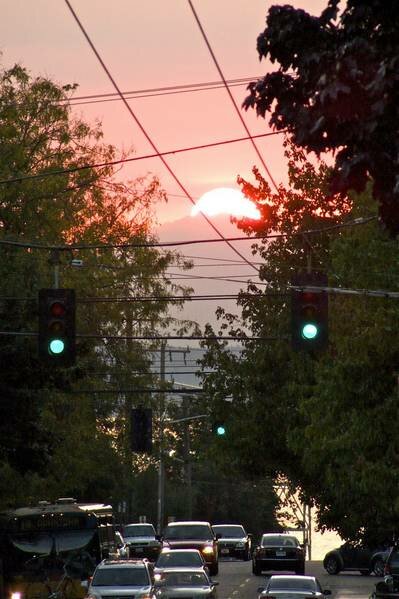 It's fall and web-spinners are out, spinning webs for 3GS iPhone auteurs or just hanging out making you nervous.
It's fall and web-spinners are out, spinning webs for 3GS iPhone auteurs or just hanging out making you nervous.
Seattle Bubble tipped us off to this CHS story about Seattle's condo auctions this weekend, and KUOW's "condo glut" take. Short story: the auctions are likely to reset condo values lower citywide. Seattle Bubble thinks that a valuation reset is about time.
Mayor Nickels released his budget for 2010, which slashes city staff and raids our rainy day fund. It also raises $600 million for the deep-bore tunnel construction project. The city council sounds ready to rubber-stamp it--except for Nick Licata.
On the SunBreak, Roger reported on a class action lawsuit proceeding against the Oklahoma Thunder née Seattle Sonics ownership group. Jeremy looked into the Twilight future of Forks, and MvB talked with Metro chief Kevin Desmond about technology and transit.
Next week, Publicola is looking forward to The Pink Panther at Central Cinema. Count us in. More than ever, the world needs Peter Sellers' Inspector Clouseau.
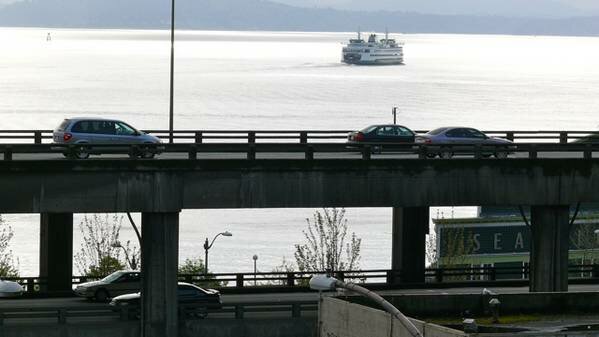
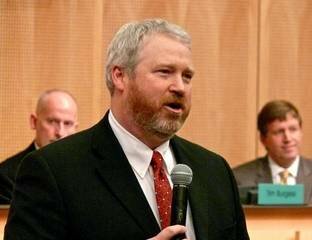

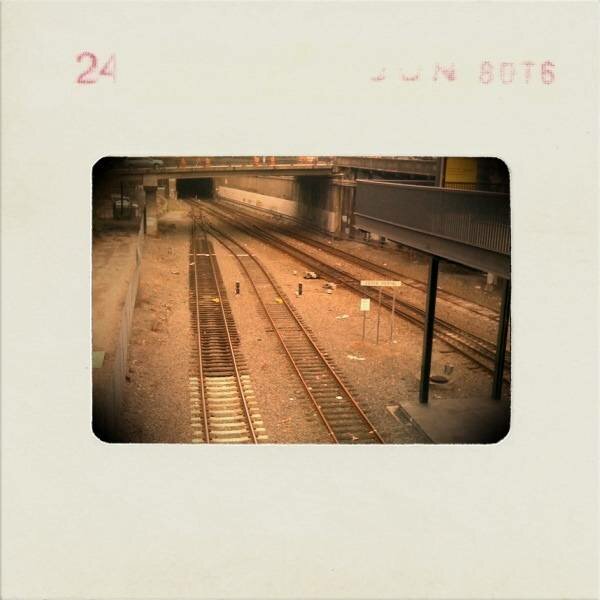
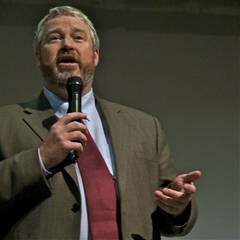

Most Recent Comments